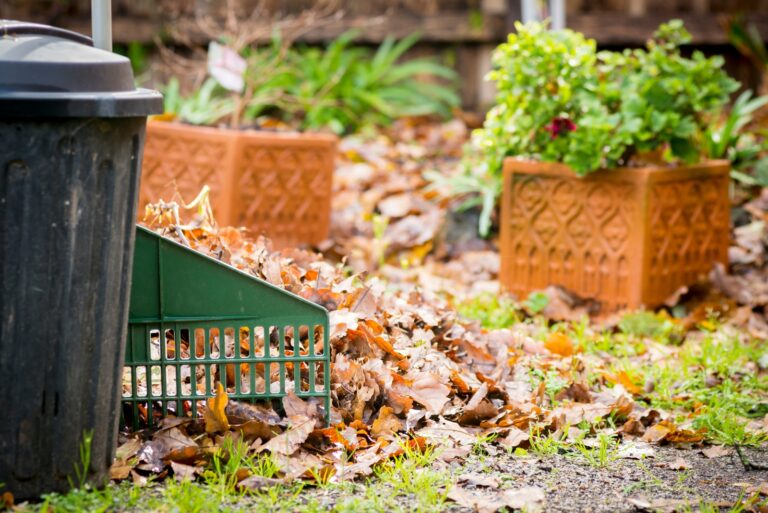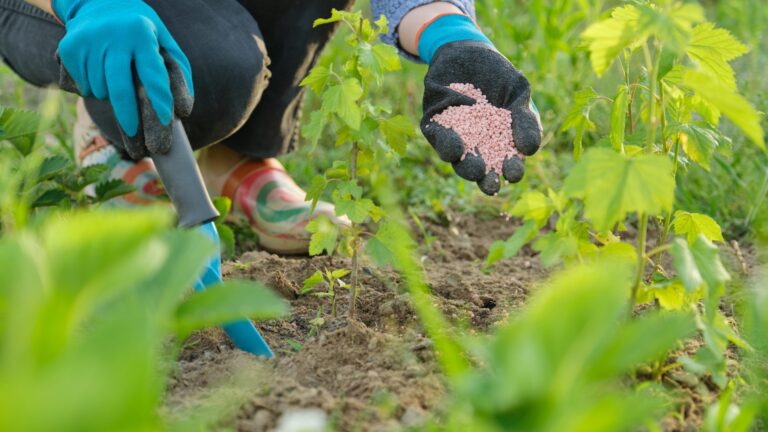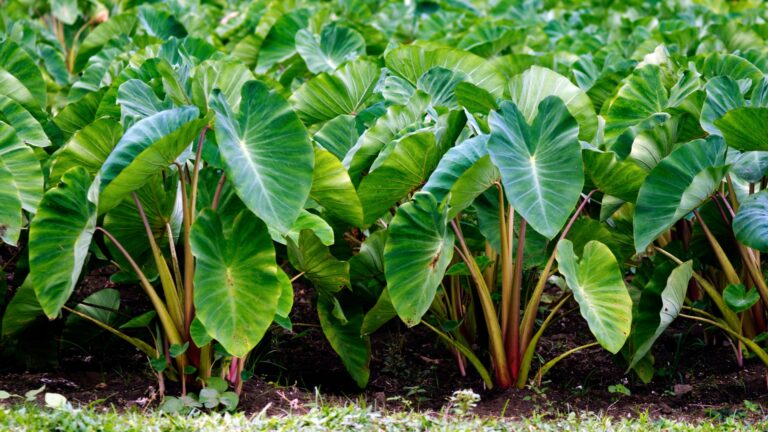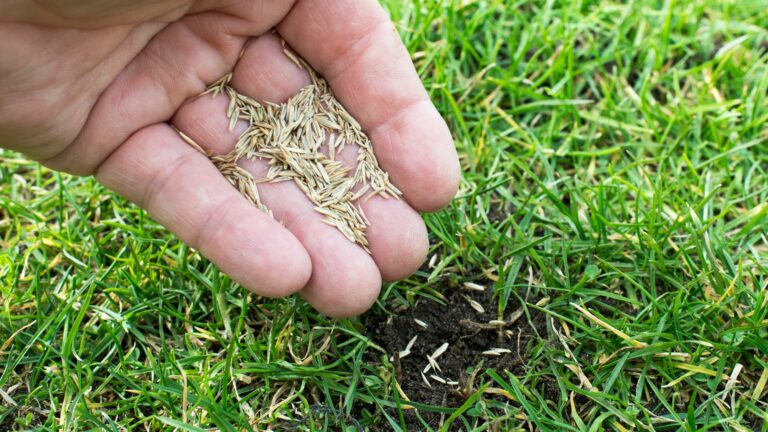The Indoor Composting Tricks New Yorkers Use To Avoid Kitchen Odors
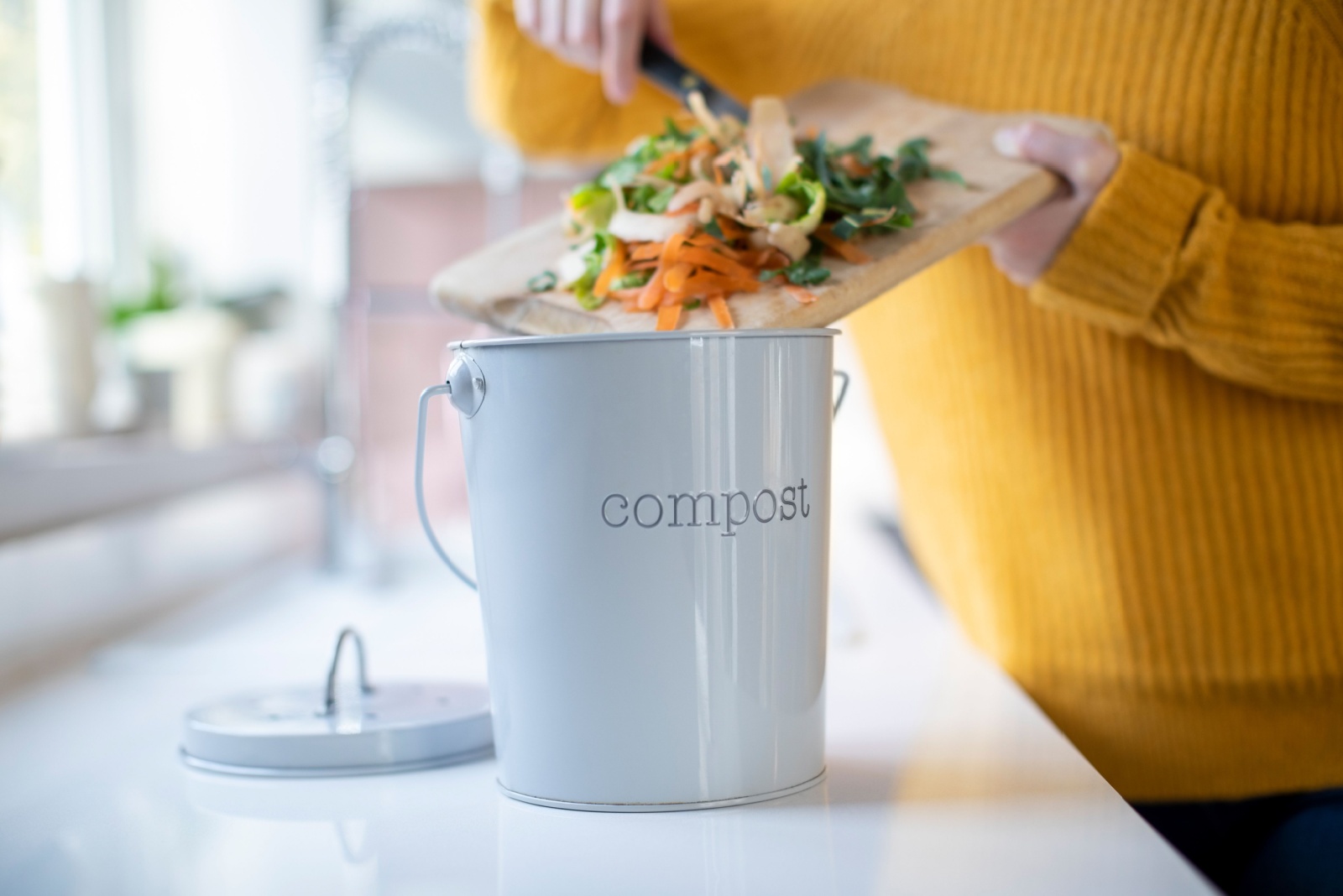
Living in a small New York City apartment means every square inch counts, and nobody wants their kitchen smelling like yesterday’s leftovers.
Indoor composting is a smart way to reduce waste and help the environment, but it can get stinky fast if you’re not careful. Luckily, New Yorkers have figured out some clever tricks to keep their compost bins fresh and odor-free, even in tiny spaces.
Freeze Your Scraps Until Collection Day
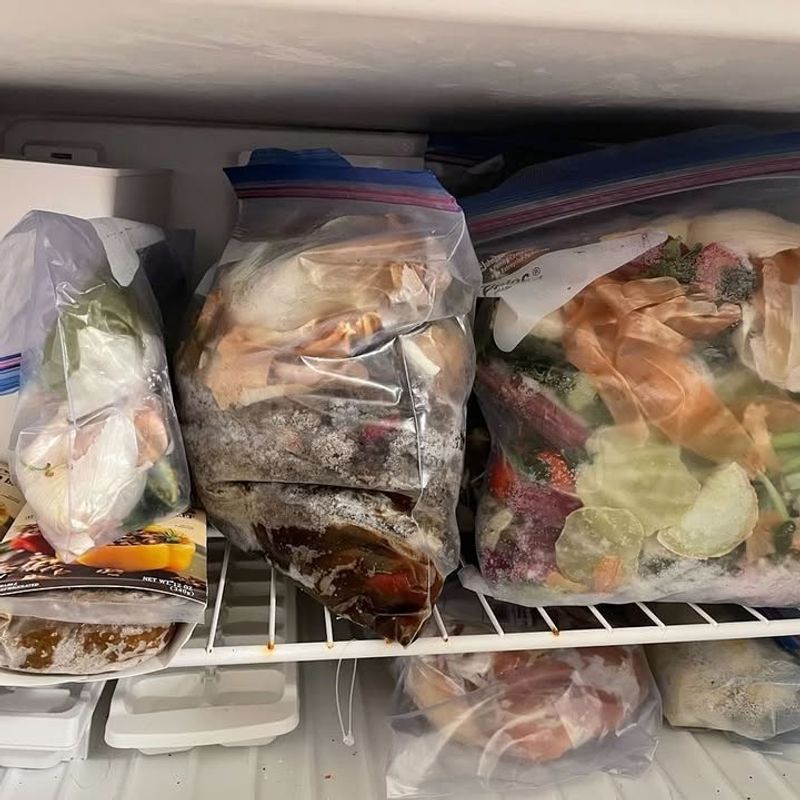
Storing your food waste in the freezer might sound unusual, but it works like magic. When organic materials freeze, they stop breaking down and releasing those unpleasant smells that can take over your kitchen.
Many city dwellers keep a sealed container or bag in their freezer specifically for compost scraps. Just toss in your banana peels, coffee grounds, and veggie trimmings throughout the week.
When collection day arrives, you simply transfer the frozen contents to your compost bin or drop-off location without any odor problems whatsoever.
Layer Brown Materials Over Wet Waste

Balance is everything when it comes to odor control. Wet food scraps like fruit rinds and vegetable peels create moisture that breeds bacteria and causes stink.
Covering these materials with dry brown ingredients such as shredded newspaper, cardboard, or dried leaves absorbs excess moisture and blocks smells from escaping. Think of it like making a lasagna, alternating between wet and dry layers.
This simple technique also speeds up decomposition and creates better compost overall, giving you two benefits in one easy step.
Add Baking Soda As A Natural Deodorizer
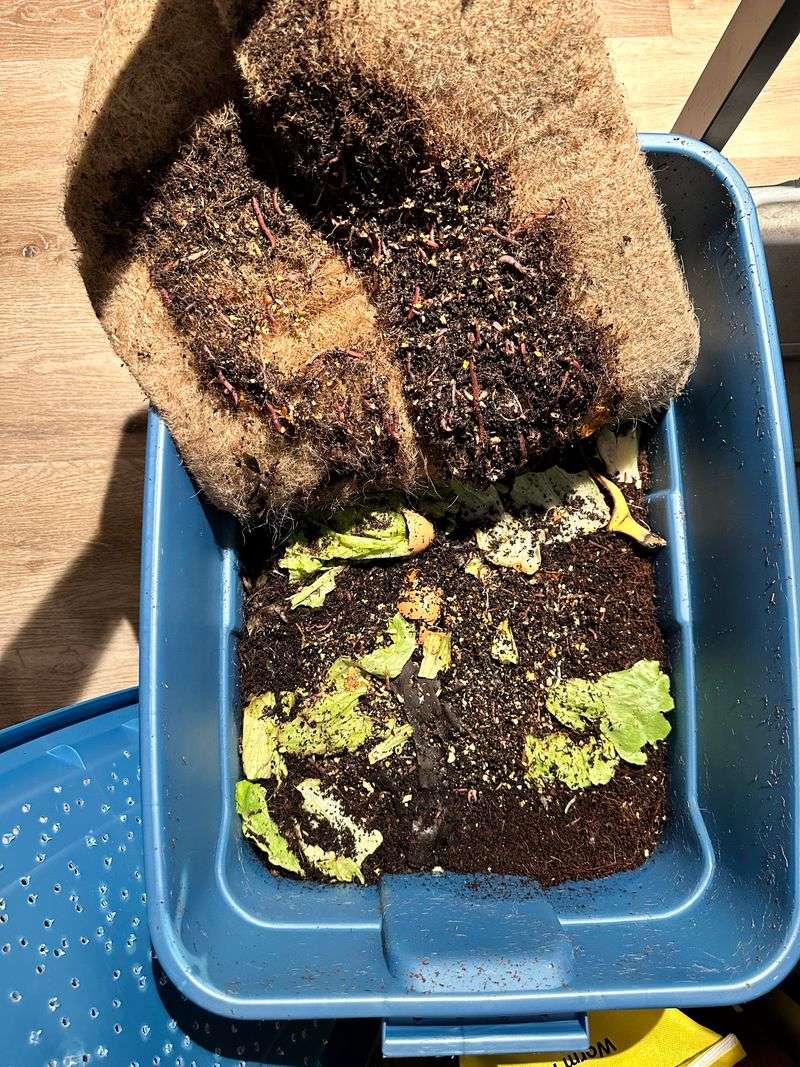
Your grandmother’s favorite cleaning ingredient doubles as a composting superhero. Baking soda naturally neutralizes acidic odors that come from decomposing food waste, making it perfect for small indoor bins.
Simply sprinkle a thin layer over your scraps every few days, or whenever you notice any funky smells starting to develop. You don’t need much—just a tablespoon or two does the trick.
This affordable solution costs pennies and keeps your kitchen smelling fresh without harsh chemicals or artificial fragrances that might bother sensitive noses.
Use Sealed Containers With Carbon Filters

Investing in the right container makes a world of difference. Compost bins designed with built-in carbon filters trap odor molecules before they escape into your living space, acting like tiny air purifiers for your food waste.
The filters usually last several months before needing replacement, and the sealed lids prevent fruit flies from getting inside. Many New Yorkers swear by these bins because they can sit right on the counter without causing problems.
Look for options with easy-to-clean interiors and dishwasher-safe parts for maximum convenience.
Empty Your Bin Frequently
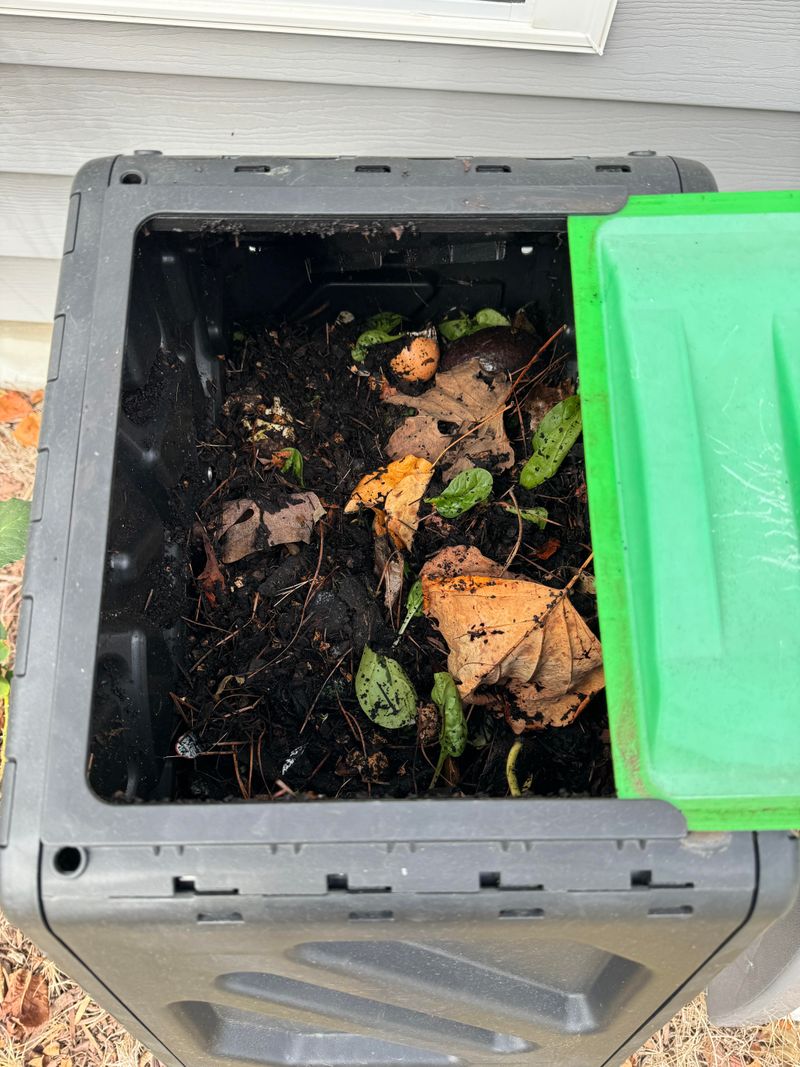
Sometimes the best solution is the simplest one. Rather than letting scraps pile up for weeks, successful composters make frequent trips to their drop-off locations or outdoor bins.
In New York, community compost sites and curbside pickup programs make this easier than ever. Setting a regular schedule—like every three to four days—prevents decomposition from reaching the really smelly stages.
Sure, it requires a bit more effort, but the payoff is a kitchen that always smells clean and fresh, no matter how much you cook.
Skip Meat, Dairy, And Oily Foods
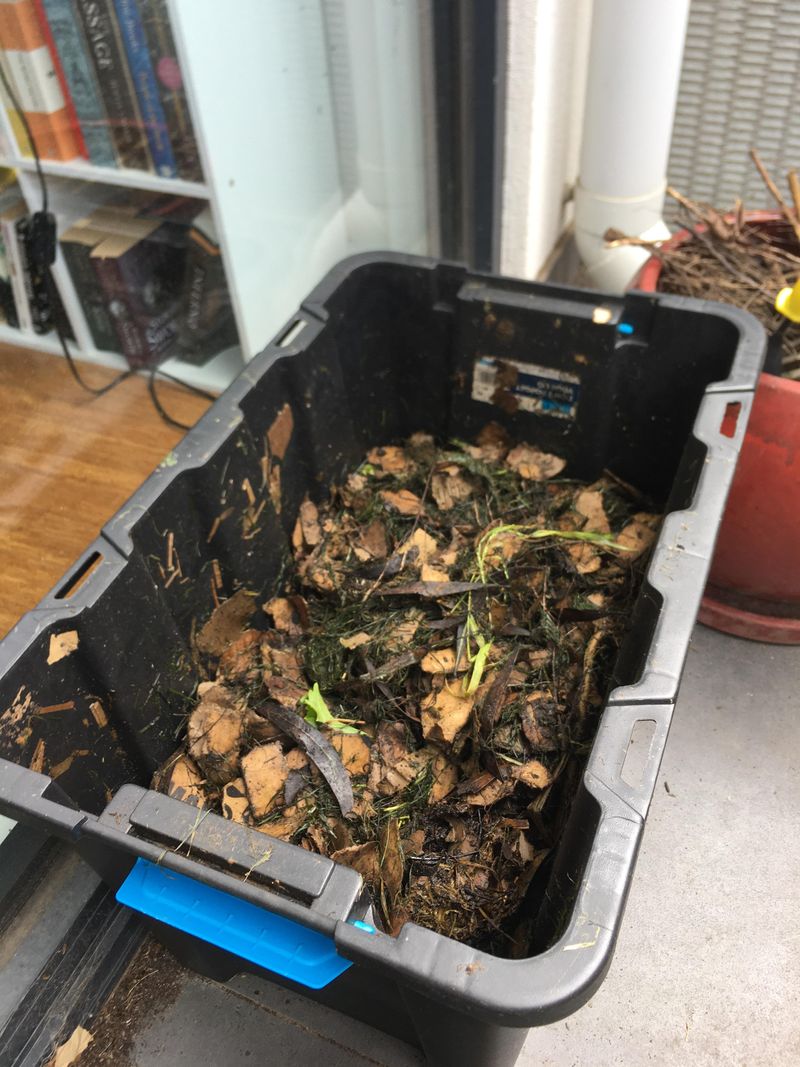
Not all food waste belongs in your small New York apartment indoor compost bin. Animal products and greasy items break down differently than plant-based scraps, creating powerful odors that are nearly impossible to control in small spaces.
Stick to fruit and vegetable peels, coffee grounds, tea bags, and eggshells for best results. These materials decompose more predictably and produce far less smell when stored indoors.
Save the meat scraps and cheese rinds for the regular trash, or check if your local composting facility accepts them at their outdoor processing center instead.
Add Citrus Peels For Natural Freshness
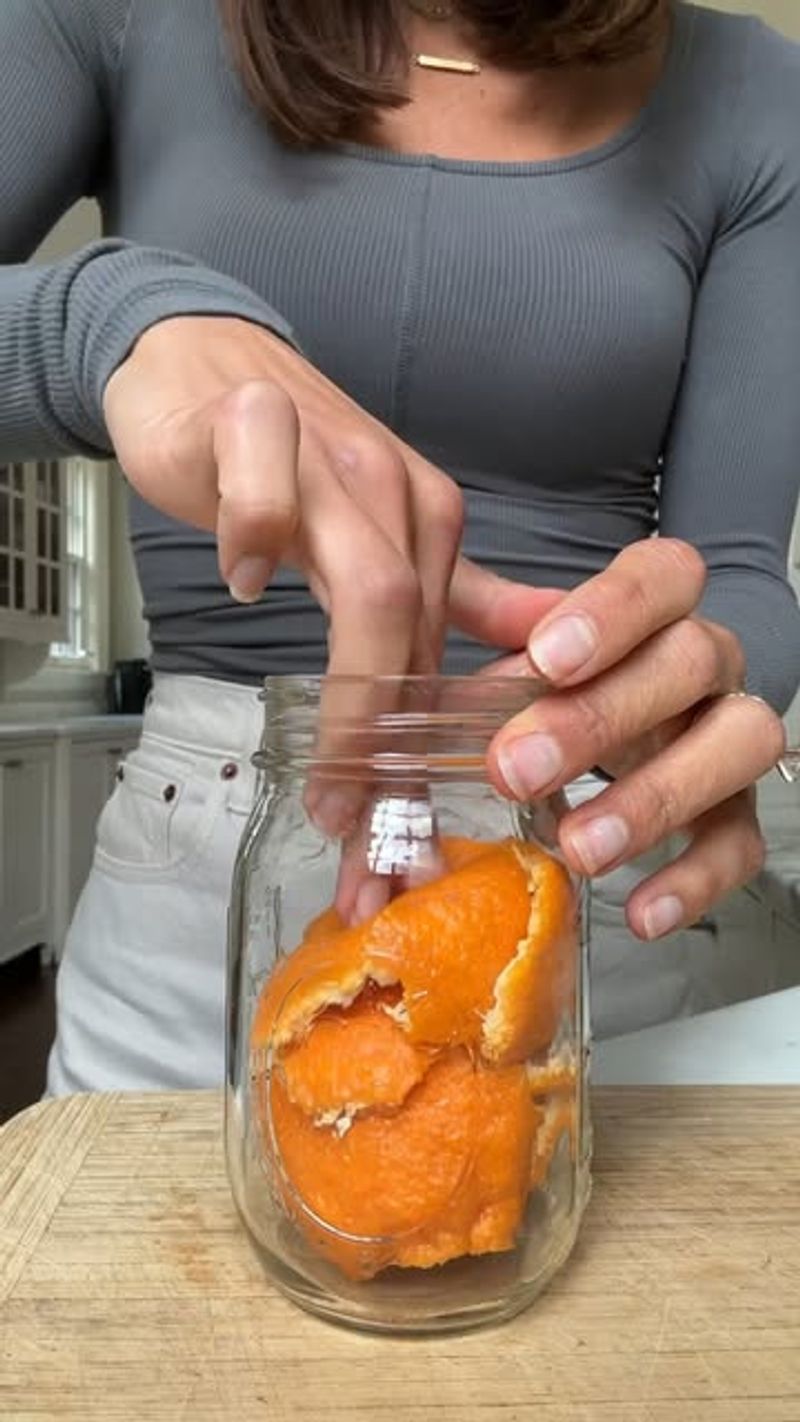
Citrus fruits do double duty in your compost system. Orange, lemon, lime, and grapefruit peels release natural oils that smell amazing and help mask any unpleasant odors from other decomposing materials in your bin.
The acidity also helps control bacteria growth, though you shouldn’t overdo it since too much citrus can slow down the composting process. A few peels mixed throughout your scraps creates the perfect balance.
Plus, the bright colors make your compost bin look more appealing, which sounds silly but actually encourages you to keep using it consistently.


